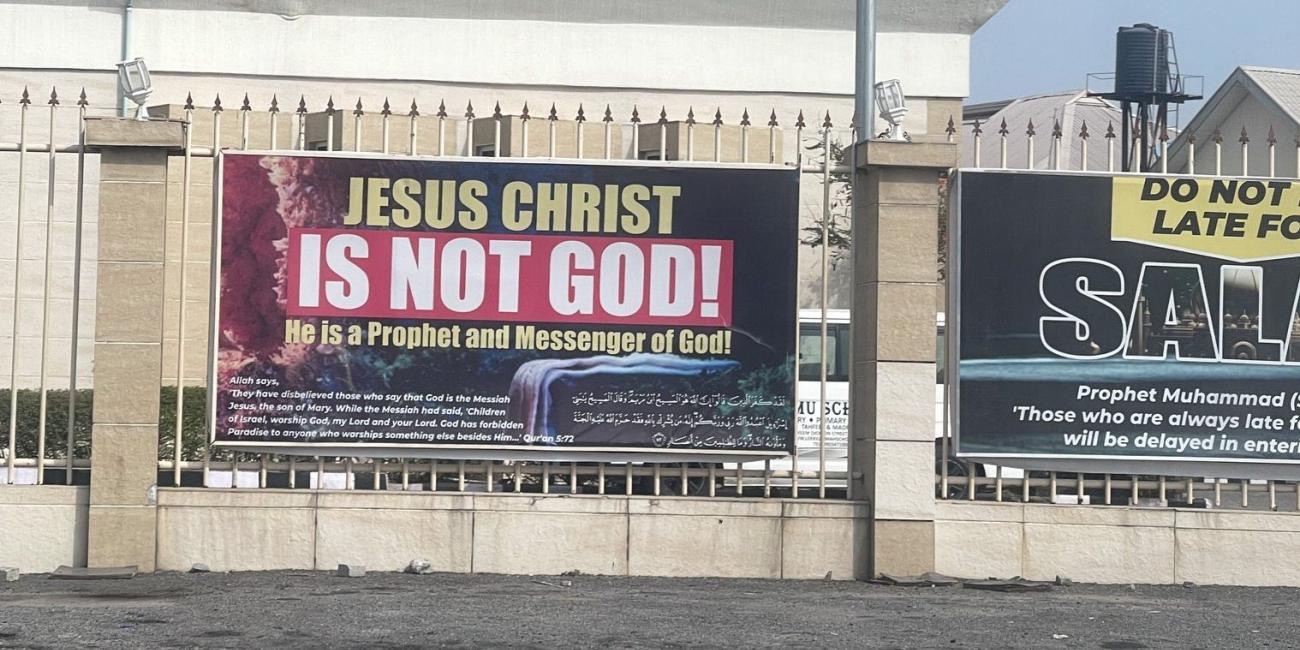A mosque in Lagos has come under public scrutiny after displaying a controversial banner reading “Jesus Christ is Not God.” The banner, placed prominently on the mosque premises, sparked outrage among Christians and members of the public, who criticized it as inflammatory and disrespectful to their faith. Social media platforms were flooded with reactions, with many condemning the banner as a direct attack on Christian beliefs in a country known for its religious diversity.
The backlash led to widespread discussions about the need for mutual respect and sensitivity in religious practices. Many individuals, both Christians and Muslims, called for dialogue and understanding to maintain peace and harmony in the community. Religious leaders and organizations also stepped in, urging members of their respective faiths to avoid provocative actions or statements that could inflame tensions.
In response to the public outcry, the mosque authorities decided to take down the banner. They issued a statement apologizing for any offense caused, explaining that the banner was not intended to incite conflict but to express their theological standpoint. The management of the mosque emphasized the importance of interfaith harmony and expressed their commitment to fostering peaceful coexistence among all religious groups in Lagos.
The incident has reignited conversations about the role of religious freedom and responsibility in a multicultural society like Nigeria. While individuals and religious institutions have the right to express their beliefs, many argue that such expressions should be done in a way that respects the beliefs of others. The incident serves as a reminder of the delicate balance required to maintain unity in a religiously pluralistic society.
As tensions ease, calls for interfaith dialogue have grown louder. Community leaders are advocating for greater collaboration between religious groups to promote understanding and avoid future conflicts. The removal of the controversial banner is seen as a step in the right direction, signaling a willingness to prioritize peace and unity over divisive rhetoric.
